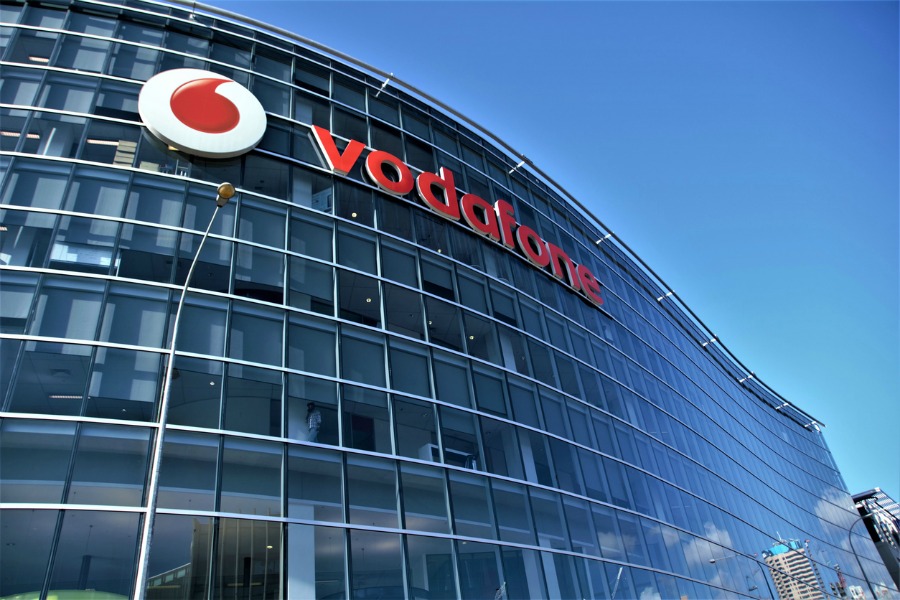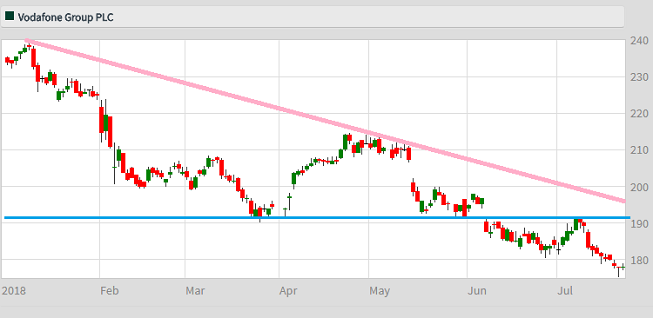Vodafone's 7.5% yield is 'too cheap'
25th July 2018 12:08
by Graeme Evans from interactive investor
Its share price has plunged in 2018 and now trades at multi-year lows, but some in the City are betting on a big recovery, writes Graeme Evans.

After 10 years restructuring Vodafone Group, it's looking like CEO Vittorio Colao won't be getting the rousing send off from investors he probably deserves.
The final chance for Colao to re-invigorate the share price before his exit in October came with today's first quarter trading update. But this offered no fresh momentum for the FTSE 100 company's shares, which remain below the five-year trading range of 180p-255p having fallen by 25% since the start of the year.
There is still the chunky 7.5% dividend yield for income investors to celebrate, but even this has been subject to concerns over sustainability given that the pay-out is not fully covered by earnings.
• The week ahead: Vodafone, ITV, BT
• Dividend alert: Three high-yielding bond proxies flash red
The question for investors going forward will be whether the foundations built by Colao will now start to pay off under the new leadership of current finance director Nick Read.
UBS analyst Polo Tang thinks there's cause for hope as he stuck by his 250p price target and 'buy' recommendation in the wake of today's figures.
He sees the stock as being too cheap based on Vodafone's 9.6% free cash flow yield, as well as that big dividend yield. Tang notes that the company has overhauled its portfolio and is now realising a tailwind from cost savings.

Source: interactive investor Past performance is not a guide to future performance
Under Colao, Vodafone has been transformed from a consumer-focused 2G/3G mobile operator to a world leading converged communications company.
Its portfolio includes the largest mobile and fixed next-generation network in Europe, a significant international enterprise division, and a key presence in the development of 'Internet of Things' technology.
Minority shareholdings were jettisoned in favour of controlled and co-controlled assets while the mobile customer base is now at 536 million across 25 countries, including significant businesses in India, Egypt, Turkey and in Africa.
However, much of this progress has been overlooked in share price terms by the impact of competitive conditions in some of Vodafone's key markets.
Spain and Italy have been a particular concern, with today’s update showing bigger-than-expected service revenues declines in both countries during the first quarter.
Otherwise, UBS's Tang thinks the rest of the group is doing well, with Vodafone performing solidly in its key markets of Germany and UK.
This has allowed Vodafone to re-iterate its full-year guidance for organic earnings growth of between 1% and 5%, with a free cash flow generation target of at least 5.2 billion euros.
Last November, Colao upgraded guidance on 2018 underlying earnings growth - the first time in many years that Vodafone had done so - but this hasn't been followed by an upturn in stockmarket fortunes.
Another reason for the uncertainty has been Vodafone's deal to spend around £16 billion on buying cable networks in Germany and eastern Europe from US firm Liberty Global. The deal is Vodafone's biggest since Mannesmann in 2000.
These articles are provided for information purposes only. Occasionally, an opinion about whether to buy or sell a specific investment may be provided by third parties. The content is not intended to be a personal recommendation to buy or sell any financial instrument or product, or to adopt any investment strategy as it is not provided based on an assessment of your investing knowledge and experience, your financial situation or your investment objectives. The value of your investments, and the income derived from them, may go down as well as up. You may not get back all the money that you invest. The investments referred to in this article may not be suitable for all investors, and if in doubt, an investor should seek advice from a qualified investment adviser.
Full performance can be found on the company or index summary page on the interactive investor website. Simply click on the company's or index name highlighted in the article.